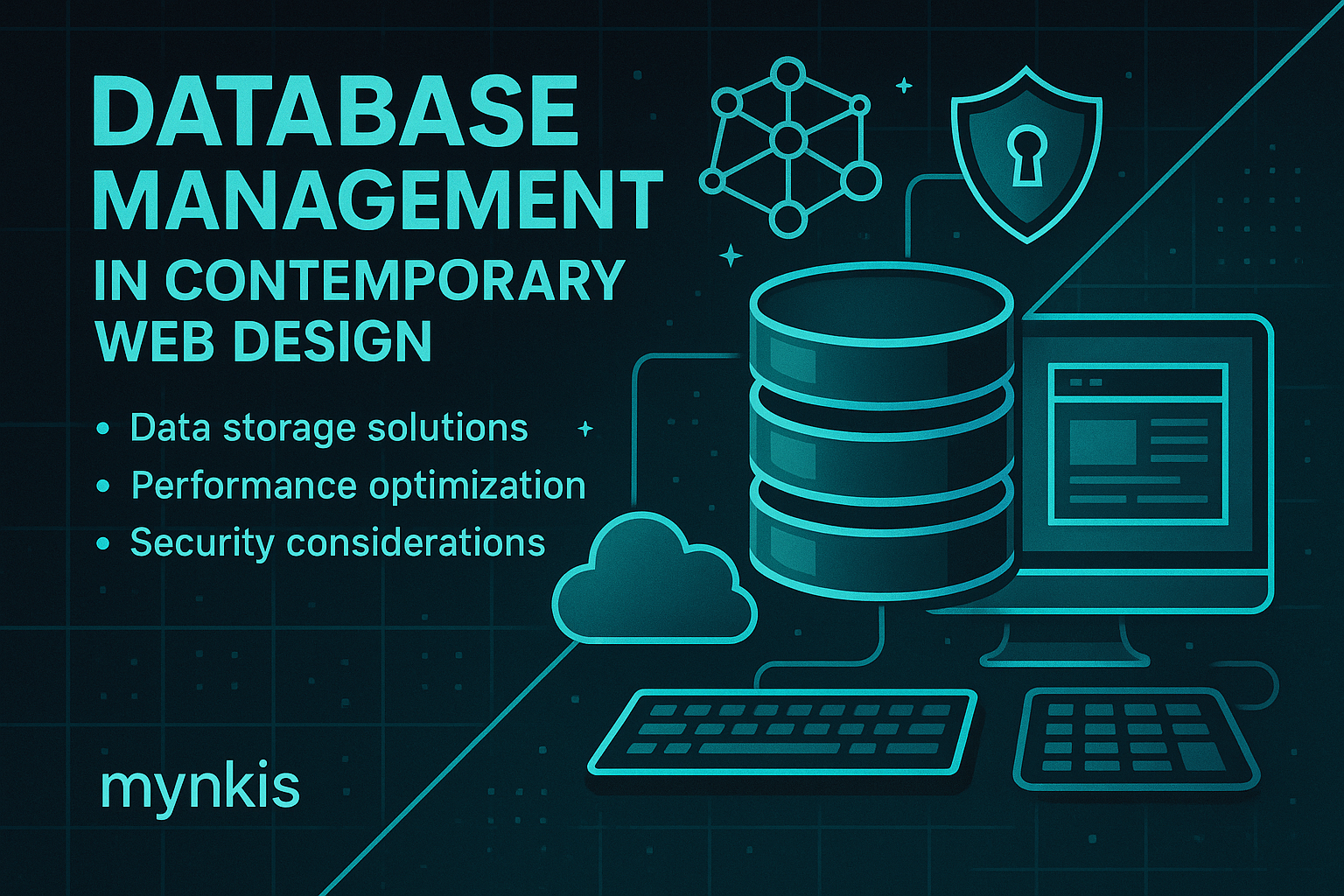Schedule a Demo
Database management isn't just a technical requirement; it's an art form that profoundly influences the web experience for businesses aiming to generate leads through SEO, automate processes, and integrate various systems. As firms explore the nuances of B2B website design, understanding how to leverage databases effectively can transform their approach to both functionality and user engagement.
For companies seeking seamless integrations, the role of a well-designed database cannot be understated. It serves as the hub that ties together disparate systems, allowing for real-time data exchange between CRM, ERP, marketing tools, and other platforms essential for your operations. Through careful planning and execution, databases facilitate the kind of unified user experience that sets truly integrated firms apart from their competitors.
In my experience working with automation-focused businesses, databases are the unsung heroes of workflow automation. By storing, retrieving, and manipulating data with precision, a thoughtfully implemented database supports tools and scripts that minimize human intervention. This goes beyond simple task automation to a level where entire business processes can operate with streamlined efficiency— reducing errors, increasing speed, and freeing up valuable human resources for higher-level strategic work.
B2B websites aimed at lead generation through SEO strategies need to appreciate the less visible yet crucial support that databases provide. Search engines favor content-rich, fast-loading websites where data is quickly accessed and manipulated. By optimizing your database, you directly enhance SEO performance. In my work, I've seen databases help businesses target keywords effectively, rank higher, and, ultimately, capture more leads from their web traffic.
The choice between SQL and NoSQL databases often boils down to the specific needs of your website and overall business strategy. SQL databases like MySQL and PostgreSQL are renowned for their ability to handle complex transactions with precision, making them the default for many B2B operations that rely on rigorous data integrity. On the other hand, NoSQL databases such as MongoDB may be more flexible for websites requiring the storage of unstructured data or those planning for scalability to accommodate a rapidly growing number of users or products.
With firms becoming more digital-centric, the importance of database security rises exponentially. Rigorous measures must be in place to protect against breaches that could undermine customer trust and business continuity. According to IBM's annual report on data breach costs, companies employing proactive database security measures experience less severe financial impacts. Implementing features such as encryption, access controls, and regular audits based on research standards ensures that your firm's data core remains uncompromised, maintaining your position as a trustworthy business leader.
Anyone building a site for lead generation or integration needs to pay special attention to database performance. Lagging databases can sabotage SEO efforts by slowing down page load times, a critical factor for Google's ranking algorithms and user satisfaction. Techniques like indexing, query optimization, and caching are your arsenal for accelerating database interactions, though their efficacy varies based on specific scenarios and business needs.
As B2B ventures look to scale up, selecting a database that can grow with them is critical. Google's cloud database solutions are testament to the idea that, with advanced architecture, scaling can be done seamlessly without compromising performance. When you're considering a solution, perhaps look beyond the initial phase towards planning where your firm may be in five or ten years— choosing scalable tech then becomes part of your long-term infrastructure investment, not just an IT detail.
With the prevalence of mobile traffic and the rise of multichannel engagement, databases need to be more versatile than ever. Aligning your database management with these channels ensures your B2B website can deliver personalized experiences no matter how or where your leads interact with it. A CRM system with well-integrated mobile responsiveness can take advantage of a database's capabilities to deliver tailored marketing content instantly to smartphones and tablets— a clear boost to your lead generation strategies.
Effective data analysis is the endpoint for accumulating and managing data through databases in B2B web development. E-commerce platforms like Shopify and Amazon rely heavily on their databases to provide actionable insights about customer behavior, which then inform both marketing and operational decisions. By ensuring your database is adept at producing data in analysis-friendly formats, you're not just collecting data; you're empowering your business to make informed strategic decisions that can directly impact your bottom line.
Navigating data privacy laws such as GDPR and CCPA presents yet another layer of database management for B2B operations. The emphasis on user rights to know and delete their personal data pushes firms to implement systems that offer robust data management functionalities. This shouldn't just be seen as a compliance requirement but as an opportunity to build trust with your B2B clients by demonstrating your commitment to protecting their data—where a seamless user experience meets ethical data handling.
The digital landscape keeps evolving, and database technologies follow suit. Trends such as GraphQL for flexible data queries, data lakes for handling big data, and blockchain for ensuring data integrity signal where we're heading. Modern businesses need to stay informed about these trends, as they can offer cutting-edge advantages in SEO-driven lead generation, complex integrations, and automation enhancement— ensuring their database management approach remains ahead of the curve.
The synergy between the backend database and the frontend of your B2B website is critical. It's about more than just making sure data flows— it's about crafting an experience where data-driven content enriches the user interaction. By strategically leveraging your database to push fresh content, customized recommendations, and a dynamically responsive interface, you seamlessly unite backend capabilities with frontend allure.
The key to a robust database management strategy is to be forward-thinking. This means not just designing for today's lead generation and integration needs but anticipating how these might evolve. Keeping adaptable and being open to new database technologies and methodologies may offer your firm the agility to meet the internet's ever-shifting sands of user expectations and technological advancements, ensuring a B2B web presence that endures and excels over time.
